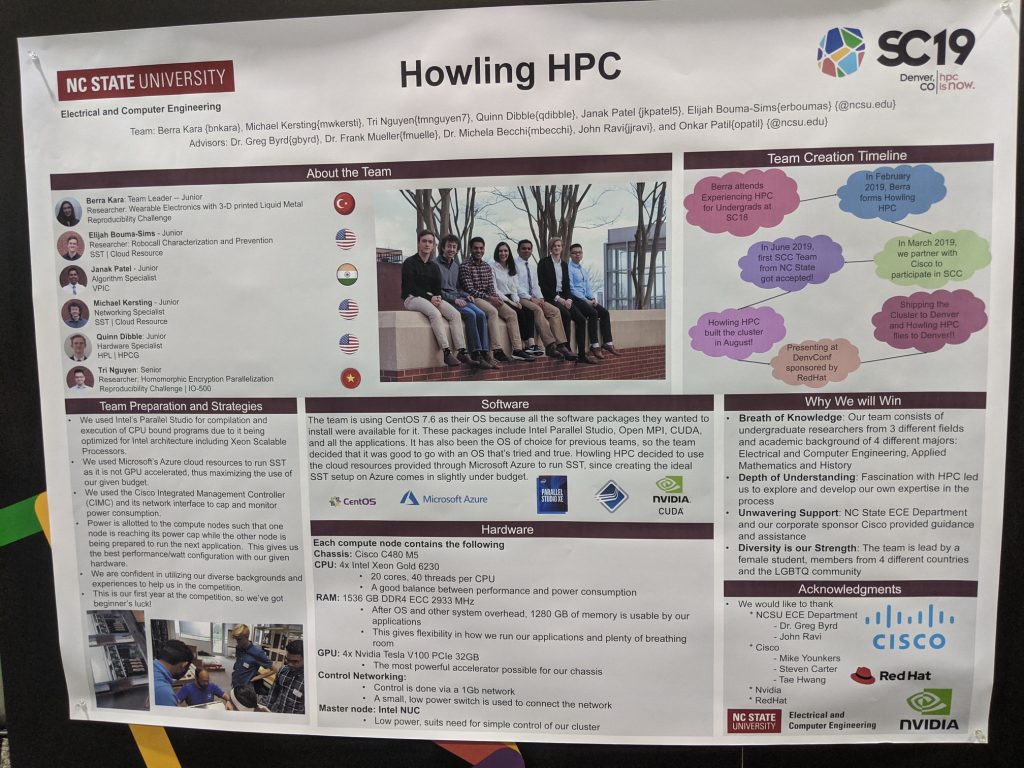At the recent SuperComputing event in Denver, I spoke with several of the teams at the Student Cluster Competition. I've already posted one of those interviews. I also had the chance to speak with the team from North Carolina State University, which was especially nice as they had sent a representative to the recent CentOS Dojo in Boston.
In this brief interview, which you can listen to in full on YouTube - https://youtu.be/-ziyUdEt_-M - we talked about their experience at the event, and what they would recommend other teams do to prepare.

Rich: I'm with a few of the members of the team from NCState. I was hoping you could tell me a little about your experience here.
NCState: It was absolutely fantastic. It's amazing to have all this hands-on experience with the cluster, and being in this competition, and while we were able to work with the cluster and practice at our University, here we had a very collaborative experience with a lot of other universities, and we appreciate that. It was exhausting, though.
R: Can you tell me about the mystery application?
Each year, there is a "mystery application" which is not announced until the team arrives onsite - whereas, the other applications they are able to prepare and practice with for months ahead of time.
NC: It was based off of the code they used to find an equation to go to Mars. And so they made a "dumbed down" version for us. That was a not too difficult application. But it was GPU based, which is really nice because a lot of the applications ended up not being GPU-based, and we had a very GPU-heavy system. But we got that up and running pretty quickly.
R: I was wondering if you could tell me why you chose CentOS as your base operating system.
NC: It's open source, which is important to us. And it was pretty stable. We wanted stability, instead of running into a lot of errors because of using too cutting edge. And because we didn't have to deal with any licensing. We just grabbed it and put it on the system. And I had a bit of experience because I put it on a personal computer at home to play around with it as well.
R: If someone from another university were interested in doing something like this, what advice would you give them?
NC: Start early. Definitely start early. Make contact with vendors and get hardware as soon as possible so you can start practicing. We were really new to this, and we've learned a lot, but there's still a lot to go. You have to budget a lot of time for this as students. Especially because you're taking a lot of other classes. It takes a lot of time to learn this. We came into this taking a few programming courses and knowing basic Linux command line skills, and now suddenly we're thrown into this with a lot going on. So, start early. Practice hard.
R: Thank you for your time and good luck when the results come out.